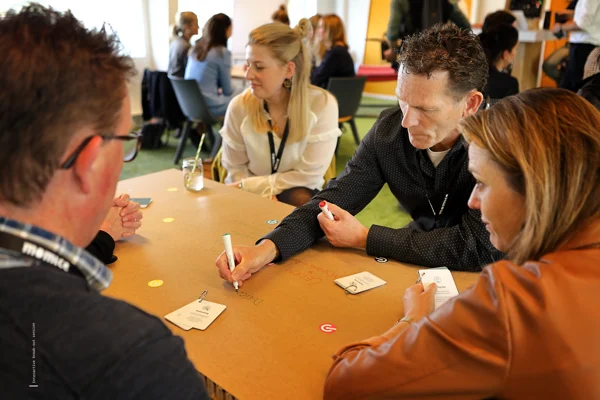Networking is one of the main reasons people attend events, and event professionals are looking for ways to facilitate this. The answer: connect your visitors by playing Cupid at your events.
A good network makes all the difference. Face-to-face encounters are more important than ever, and more and more people are discovering that events offer a solution. At the same time, the possibility of networking can be decisive for your visitor.
As an event professional, you know that you need a solid proposition. The added value of your event needs to be crystal clear, and you have to keep your promises. Offering a guest list to your invitees before the event works very well. If this list contains interesting names, your invitees are more likely to register for the event.
Outside the comfort zone
Event managers often look for apps that help their attendees network. Although this seems logical, experience shows that an app alone is not enough to guarantee valuable encounters; visitors need a helping hand regarding networking.

Creating the right setting is essential to getting them outside their comfort zone. Interactive break-outs, like speed dating, are a good example of meeting many people quickly without taking the initiative. Increasingly, ‘ice breakers’ are used in event programming to initiate conversations playfully.
There are many ways to facilitate connections among your audience during the event. For instance, use the name badge or a (name)sticker in an exercise. Randomly hand out name badges and ask people to ‘find themselves’, or challenge them to come up with a word that defines them – and write it on the name sticker. Conversations can originate more easily when you give people an accessible discussion topic.
Next-level matchmaking
Network expert Jean Paul Wijers states that facilitating valuable encounters starts before the event. You can, for instance, include one or more questions about personal interests or professional challenges in the registration form. You can link people with similar (or opposing) answers by carefully examining the answers. You can also consider matching your attendees based on existing data, like company, background, or job title.
If you want to take your matchmaking to the next level, use your CRM smartly. This contains specific data about your relations, like their purchases and (professional) areas of interest. Based on such information, you can make good matches.
Use an event survey to generate relevant information about your target audience: which events they attend, in what workshops they participate in, and how they rate the event content. Make sure you include questions about the quality of conversations and encounters. This helps you enrich the CRM – and use (event) relations management as a strategic tool.
